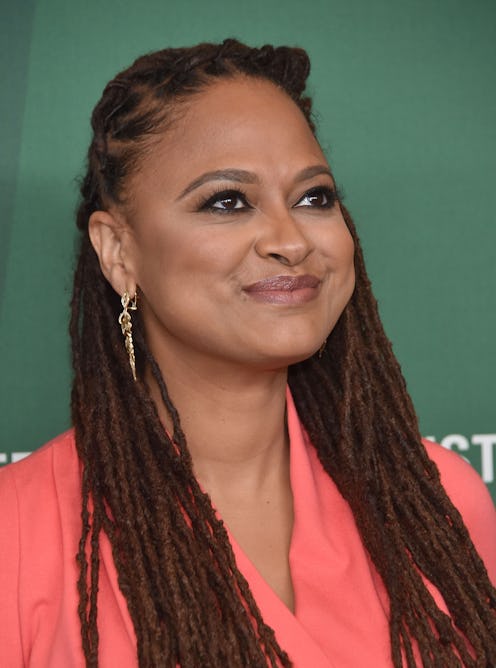Awards season is upon us once again, and with last year's controversies like #OscarsSoWhite, many are hoping that the 2017 Oscars sees more diversity than usual when it comes to both women and people of color. But judging from the contenders so far for Best Director, at least, more inclusiveness doesn't seem to be on the table. Like usual, the directors in conversation for the prestigious award are all men, despite a good number of female-directed films earning great acclaim this year. Movies like Ava Duvernay's 13th, Mira Nair's Queen of Katwe, and Andrea Arnold's American Honey have all earned high critical praise, but that hasn't translated into garnering them spots in the Best Director conversation, leaving it a male-dominated category once again.
According to many Oscar experts, the male directors in contention for a possible Best Director nomination this year include Damien Chazelle for La La Land, Kenneth Lonergan for Manchester by the Sea, Denzel Washington for Fences, Martin Scorsese for Silence, Pablo Larrain for Jackie, Barry Jenkins for Moonlight, Jeff Nichols for Loving, and Denis Villeneuve for Arrival, with Ang Lee or Clint Eastwood also possibilities for Billy Lynn's Halftime Walk and Sully, respectively. But as the names of directors rotate, one constant has remained the same: none of the filmmakers in the conversation are women.
Women directors of feature films don't have a great track record at the Academy Awards. Only four women in history have been nominated for the Best Director trophy. The first was Lina Wertmuller for the 1976 film, Seven Beauties, followed by Jane Campion for 1993's The Piano. Sofia Coppola came next for 2003's Lost in Translation, and the very worthy and eventual first female winner of the award, Kathryn Bigelow, took home the trophy in 2010 for The Hurt Locker. Yet not only has no woman won since, but no woman has even been nominated since Bigelow's win. To put that point into a bit of perspective, David O. Russell has been nominated three times since Bigelow’s win, while Alexander Payne, Martin Scorsese, and Alejandro Gonzalez Iñarritu have each been nominated twice.
And it's not for a lack of women directing Oscar-worthy films. 2014 saw both Ava DuVernay shut out for the critically acclaimed Selma and Angelina Jolie ignored for the prestigious Unbroken. 2015's Best Directing category, meanwhile could have included Diary of a Teenage Girl director Marielle Heller, but instead, all of the nominees were once again men. What gives? The problem is a matter of perception just as much as it is about numbers. Not only are there fewer women directing in Hollywood than men, but often, female directors are viewed as only making "female-skewing" films, which can be seen as "less prestigious" in the eyes of critics and the Academy. Then, add to that the fact that the Best Directing category nominees are decided upon by an Academy directors branch that is overwhelmingly male (according to Forbes, as of 2014, under 10 percent of the director's branch was female). Thankfully, as Deadline writes, the diversity initiatives the Academy kicked off in 2016 meant that 58 percent of their 92-director invitees were women, so that statistic seems to be improving.
In some categories, such as in the Foreign Language Film and Best Documentary Feature races, women directors are faring significantly better, but it's still not enough. According to a 2014 study by the Sundance Institute and Women In Film Los Angeles Women Filmmakers Initiative, women direct 34.5 percent of documentaries versus just 16.9 percent of narrative films. In 2015, What Happened, Miss Simone? co-directors Liz Garbus and Amy Hobby were nominated in the doc category. CITIZENFOUR and its director Laura Poitras, meanwhile, won Best Documentary earlier this year. Then, in the Foreign Film world, 2016 saw Deniz Gamze Ergüven's Mustang nominated for Best Foreign Language Film. 2017's foreign language submissions are 19 percent female-directed, with festival hits like Maren Ade's Toni Erdmann competing for the prize. And the documentary submissions are even higher, with women having directed 30 percent of the submissions. There are some high-profile films in that category as well, such as DuVernay's doc 13th, and CITIZENFOUR cinematographer Kirsten Johnson's Cameraperson.
But, while these films may be eligible, the chances are slim that any of them and their directors will make their way into the Best Picture or Best Director categories. It's rare that a documentary or foreign film are considered for those races, and though who's in contention can rotate week by week, there aren't any high-profile or "prestigious" female-directed films still set to premiere over the next coming months. Perhaps 2018 will see a change, but until then, women directors are continuing to be shut out of the Oscar conversation.
